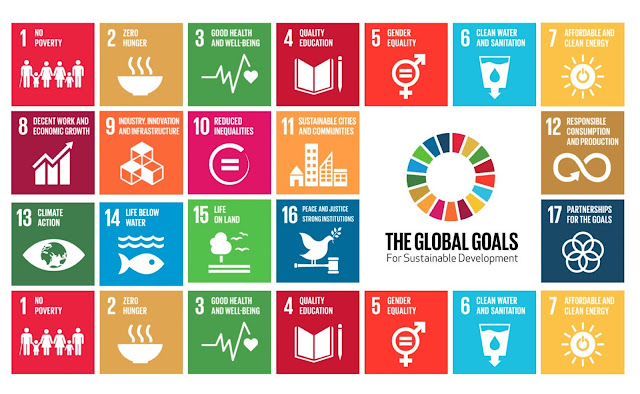Discover how countries like Pakistan, encountering political unrest and economic challenges, can aspire to become AI superpowers. Explore the policy measures they should adopt, the institutions that need to focus on AI development, and the realistic timeframe for achieving this transformation. Learn from real-world examples and gain insights into the crucial steps required to navigate this AI journey.
The Path to AI Superpower
Pakistan, a country grappling with political unrest and a challenging economic situation, can pursue becoming an AI superpower. The road to achieving this status is full of obstacles, but with feasible policy measures and strategic focus, Pakistan can boost its potential. In this article, we will discuss the timeframe within which countries like Pakistan can transform themselves into AI superpowers, the policy measures they should adopt despite a largely uneducated population, and the institutions that need to divert their focus towards AI development.
1. Understanding the Transformation Timeframe
Becoming an AI superpower is not an overnight drive. It requires a long-term vision, sustained efforts, and a systematic approach. The exact timeframe for countries like Pakistan to achieve this status depends on various factors, including the level of investment, policy effectiveness, and the availability of skilled professionals. It is crucial to set realistic expectations and understand that the journey may span several years or even decades. However, real-world examples demonstrate that a decade of consistent policy can significantly enhance a nation’s path to growth. India serves as a prime illustration of this, as the introduction of the national security policy by Narasimha Rao and the subsequent policy consistency propelled India’s economy forward.
2. Overcoming Political Unrest and Economic Challenges
Political unrest and economic instability pose significant challenges to Pakistan’s aspirations of becoming an AI superpower. A stable political environment and a robust economy are essential for fostering innovation and technological advancements. To overcome these challenges, Pakistan needs to focus on political reforms, ensuring transparency, and creating a favourable business climate that attracts local and foreign investments.
Political Stability for Peace and Prosperity: Exploring its Impacts
3. Addressing the Issue of a Large Uneducated Population
One of the significant hurdles for countries like Pakistan is the presence of a substantial uneducated population. To navigate this obstacle, the government should prioritize education reform and invest in initiatives that promote access to quality education for all. By improving literacy rates and expanding educational opportunities, Pakistan can cultivate a skilled workforce capable of driving AI development and innovation.
The Rise of Artificial Intelligence: Advancements, Applications, and Impacts
Policy Measures for AI Development
1 Investing in Education and Skill Development
The first step towards fostering AI development in Pakistan is investing in education and skill development programs. This includes modernizing educational curricula to incorporate AI-related subjects, providing specialized training to teachers, and establishing AI-focused educational institutions. By equipping students with the necessary knowledge and skills, Pakistan can nurture a new generation of AI experts.
The Great Robot Debate: Will They Steal Our Teaching Jobs?
2. Promoting Research and Development
To accelerate AI development, Pakistan should encourage research and development activities in both academia and industry. This can be achieved through grants, funding programs, and incentives that support AI research projects. Collaborations between universities, research institutes, and industry players should be promoted to elevate knowledge sharing and innovation.
3. Fostering Collaboration between Academia and Industry
Close collaboration between academia and industry is vital for the successful implementation of AI initiatives. Pakistan should establish partnerships and joint ventures between universities and technology companies to facilitate knowledge transfer, commercialize research outcomes, and provide students with industry exposure. Such collaborations can lead to the development of innovative AI solutions tailored to Pakistan’s specific needs.
4. Creating an Enabling Regulatory Environment
A supportive regulatory environment is crucial for AI development. Pakistan should establish clear guidelines and regulations that address ethical considerations, data privacy, and security concerns. Striking the right balance between fostering innovation and ensuring responsible AI deployment is essential. By creating an enabling regulatory framework, Pakistan can attract AI investments and encourage the growth of AI-driven startups.
5. Attracting Foreign Direct Investment
Foreign direct investment (FDI) plays a crucial role in boosting AI development. Pakistan should actively seek FDI by offering incentives, tax breaks, and streamlined processes for setting up AI-focused businesses. Engaging in international partnerships and showcasing the country’s potential as an emerging AI hub can attract global investors and encourage knowledge transfer.
Investments of Overseas Citizens: Pakistan’s Failure to Protect Them
6. Real-World Example
Several real-world examples of countries that have made significant development in AI development can serve as inspiration for others. Some notable AI superpowers include the United States, China, and Japan. The United States, with its thriving tech industry and investment in AI research, has been at the forefront of AI advancements. China has also demonstrated remarkable progress to become a global superpower with AI. Japan, known for its innovation and robotics expertise, has been actively developing AI technologies to drive economic growth and become an Asian. These countries’ experiences offer valuable insights and lessons for nations aspiring to become AI superpowers.
*Read more Exploring Exciting Opportunities for Teachers with AI: The Future of Education – Republic Policy
Institutions Driving AI Development
1. Establishing AI Research Centers
Pakistan needs to establish dedicated AI research centres that serve as hubs for innovation and knowledge creation. These centres can bring together researchers, industry experts, and policymakers to collaborate on cutting-edge AI projects. By providing state-of-the-art infrastructure, funding, and resources, these research centres can accelerate AI development in the country.
2. Collaborating with Leading International Institutions
Collaboration with leading international institutions is crucial for knowledge exchange and capacity building. Pakistan should seek partnerships with renowned AI research institutes and universities worldwide. Such collaborations can facilitate access to the latest advancements in AI, promote research collaboration, and attract international experts to contribute to Pakistan’s AI ecosystem.
3. Strengthening Existing Universities and Research Institutes
Pakistan already has several universities and research institutes with the potential to contribute to AI development. These institutions should receive increased support and funding to establish AI-focused departments, recruit expert faculty, and upgrade their research infrastructure. By strengthening these existing institutions, Pakistan can facilitate their expertise and resources in driving AI innovation.
Conclusion
Despite political unrest and challenging economic conditions, countries like Pakistan have the potential to become AI superpowers. By adopting feasible policy measures, investing in education and skill development, fostering collaboration between academia and industry, and establishing dedicated research centres, Pakistan can pave its way to AI excellence. It is a long-term commitment that requires sustained efforts and the collective involvement of government, educational institutions, industry players, and international partners. But remember, there is nothing impossible when human capital is getting AI support too.
FAQs
1. How long does it take for countries like Pakistan to become AI superpowers?
The timeframe for countries like Pakistan to become AI superpowers varies depending on several factors, including policy effectiveness, investment levels, and the availability of skilled professionals. It is a long-term initiative that may span several years or even decades. However, real-world examples demonstrate that a decade of consistent policy can significantly enhance a nation’s growth. India serves as a prime illustration of this, as the introduction of the national security policy by Narasimha Rao and the subsequent policy consistency propelled India’s economy forward.
2. What policy measures should countries like Pakistan adopt to become AI superpowers?
Countries like Pakistan should focus on investing in education and skill development, promoting research and development, fostering collaboration between academia and industry, creating an enabling regulatory environment, and attracting foreign direct investment.
3. How can countries with a largely uneducated population drive AI development?
Countries with a largely uneducated population should prioritize education reform and invest in initiatives that promote access to quality education for all. By improving literacy rates and expanding educational opportunities, these countries can cultivate a skilled workforce capable of driving AI development and innovation.
4. Which institutions should divert their focus towards AI development in Pakistan?
Pakistan should establish dedicated AI research centres, collaborate with leading international institutions, and strengthen existing universities and research institutes. These institutions can contribute to AI development by conducting research, fostering innovation, and providing the necessary expertise and infrastructure.
5. How can Pakistan attract foreign investment in AI?
Pakistan can attract foreign investment in AI by offering incentives, tax breaks, and streamlined processes for setting up AI-focused businesses. Engaging in international partnerships and showcasing the country’s potential as an emerging AI hub can also attract global investors and encourage knowledge transfer.









2 Comments